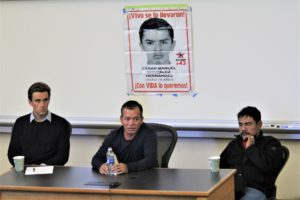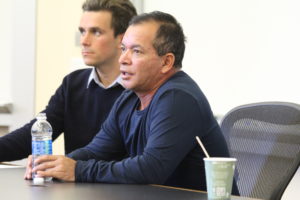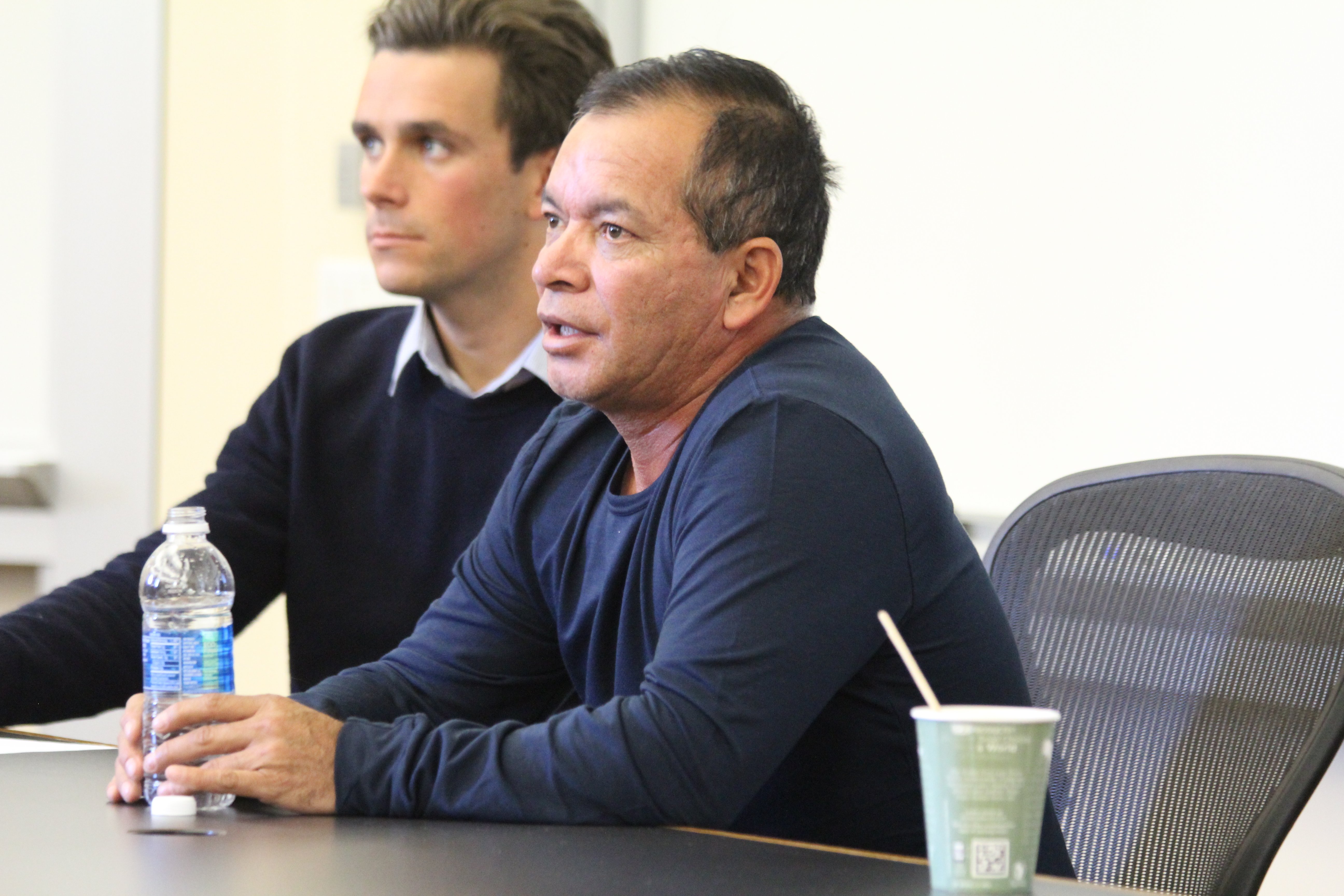Two years ago in Iguala, Mexico, 43 students from the Ayotzinapa Normal Rural school disappeared during a mass kidnapping; their parents continue fighting for justice.

One such parent continued that fight by raising awareness at Stanford about the Ayotzinapa disappearances. Mario César González Contreras, father of disappeared student César Manuel González Hernández, and Felipe de la Cruz, spokesperson for the families of the 43 students, participated in a panel at the Law School hosted by the Stanford Human Rights Center, the Stanford International Human Rights Law Association and the Center for Latin American Studies.
“The mission of our second caravan is to inform the University communities [in the United States] that on the 24th of September of 2014, students of the Raul Isidro Burgos Normal Rural School of Ayotzinapa were attacked by the Mexican government through elements of the Mexican army and police,” De la Cruz said. “Today we know from investigations done by the National Commission on Human Rights and independent experts that the students were taken by Huitzuco police to that municipality to then have their unknown fates decided.”
The parents’ fight for truth continues after the Mexican government’s report on the events, which gave responsibility for the mass kidnapping to members of organized crime, was discredited by an investigation done by the Inter-American Commission on Human Rights. Their hope to see their sons again persists.
“For us they are still alive,” De la Cruz said. “People say ‘they are dead, why should we still talk about it, the parents are being stubborn, they don’t want to understand.’ Well, we would like to tell these people that they are not dead. After two years and one month they still haven’t been able to prove that they are dead. We look for them alive.”
González and de la Cruz say that they travel to campuses across the U.S. in search for solidarity. This event was part of their second visit to the United States. They hope that exposing the injustices the Mexican government inflicted on their sons will empower students here in America to either start or continue a movement in support of the 43.
“The Stanford community has already helped us by just listening to us and our cause,” González said. “We have been through a lot to keep the case open, but you could really help our cause by promoting it with a rally, a video or a sign expressing support. After all, they are students just like you.”
Harvard alum Miguel Guevara contacted Gustavo Robles, Ph.D. candidate in Political Science, to organize the event. Guevara organized a similar event at Harvard University as an undergraduate student last year, when the parents were on their first visit to the United States. He hopes that this event will have an effect on the Stanford community.

“What is important to have in mind is that the Mexican government really cares about how Mexico is seen abroad,” Guevara said. “And places like Stanford carry a lot of weight in Mexican public opinion. I think what is important for the Stanford community is not only to participate in the event, but to also actively engage with the speakers and share their words in social media, blog posts and other mediums.”
Carolyn Herrera ’20 was curious about the Ayotzinapa case, having only briefly heard about it through family and friends. After she heard that parents of the 43 were coming to Stanford to share their experiences on the case, she saw a unique opportunity to get involved.
“The event was really inspiring and gave me new perspectives in the difficulties of bringing justice for the 43 and in all the corruption and technicalities that parents and activist have to go through,” Herrera said. “I feel that as Stanford students we can bring about the message that the parents brought to us.”
The 43 students from Ayotzinapa have become a symbol for all the people that have disappeared in Mexico and their families.
“In Mexico, there have been more than 20,000 people that have disappeared over the last four years,” Guevara said.
Due to the nature of the mass disappearance at Ayotzinapa, the case has been set apart and has been particularly problematic for the Mexican government.
“More Mexicans are watching what are the results of this case, and it is really important for this case to be resolved because otherwise there is very little hope for those 20,000 families who are still waiting for their kids to come back home,” Guevara said.
Editor’s Note: The panel and interviews were originally conducted in Spanish and were translated by Eder Lomeli.
Contact Eder Lomeli at elomeli ‘at’ stanford.edu.
